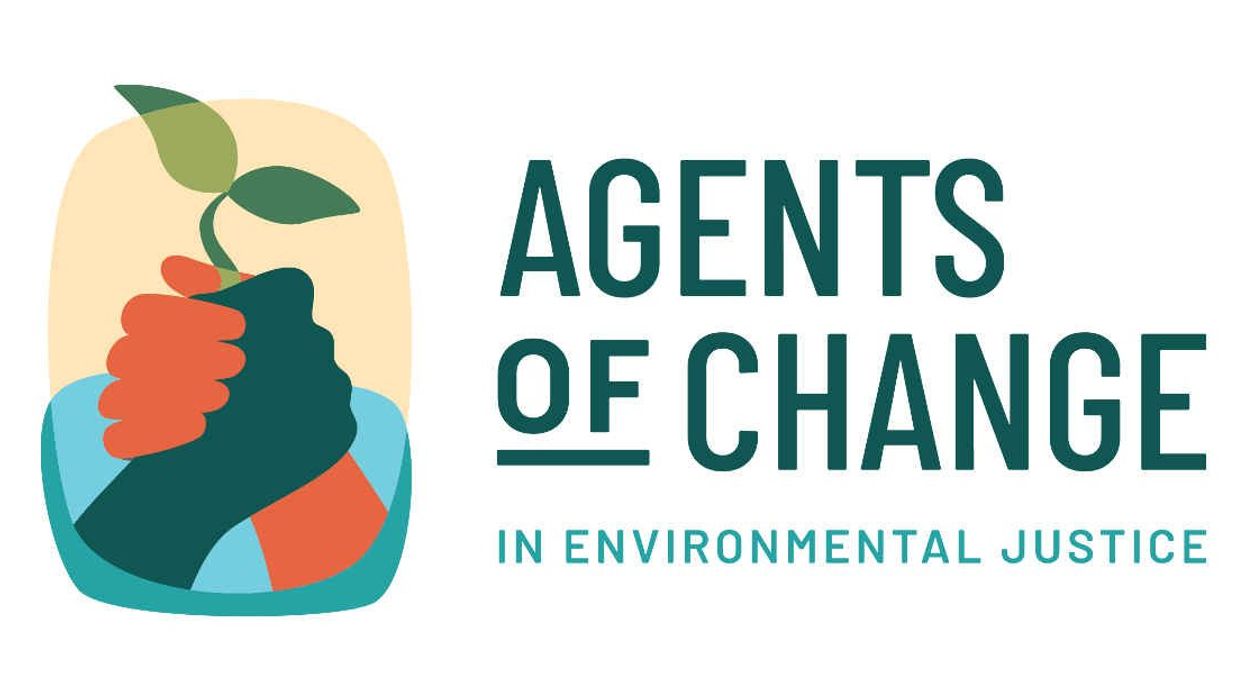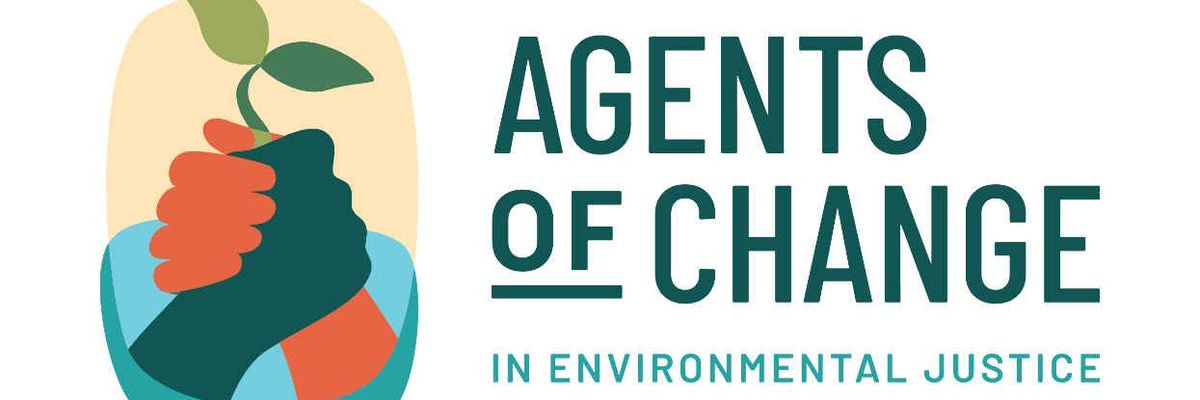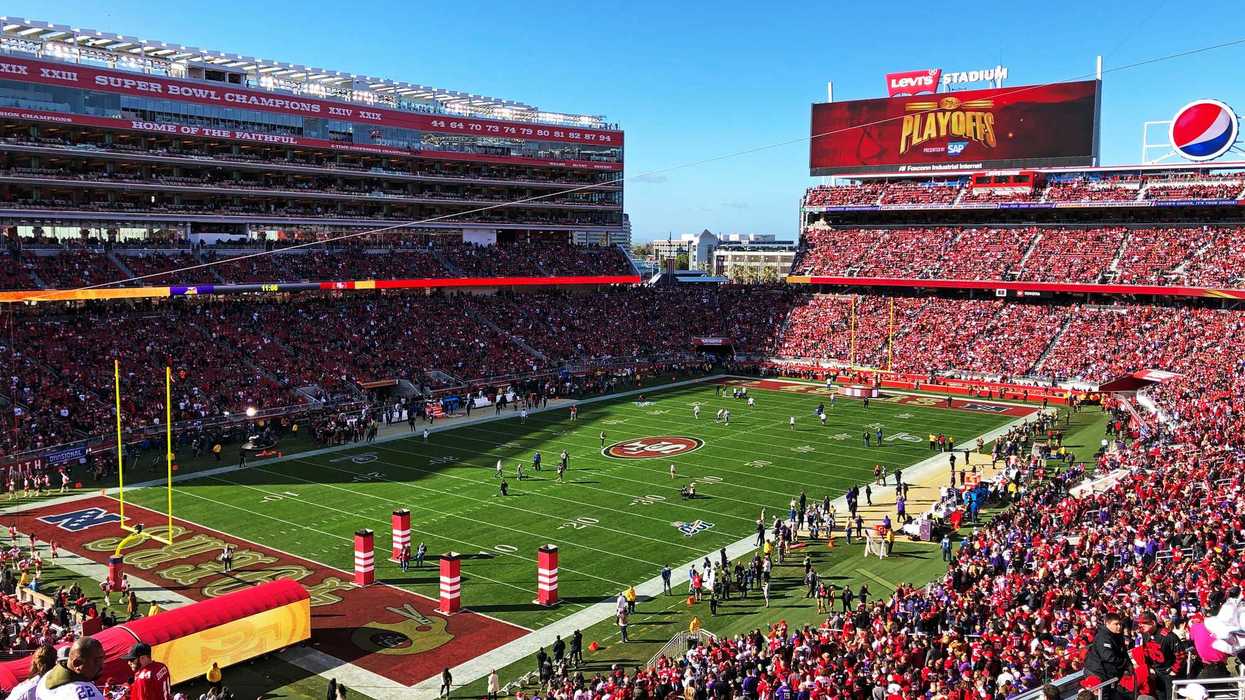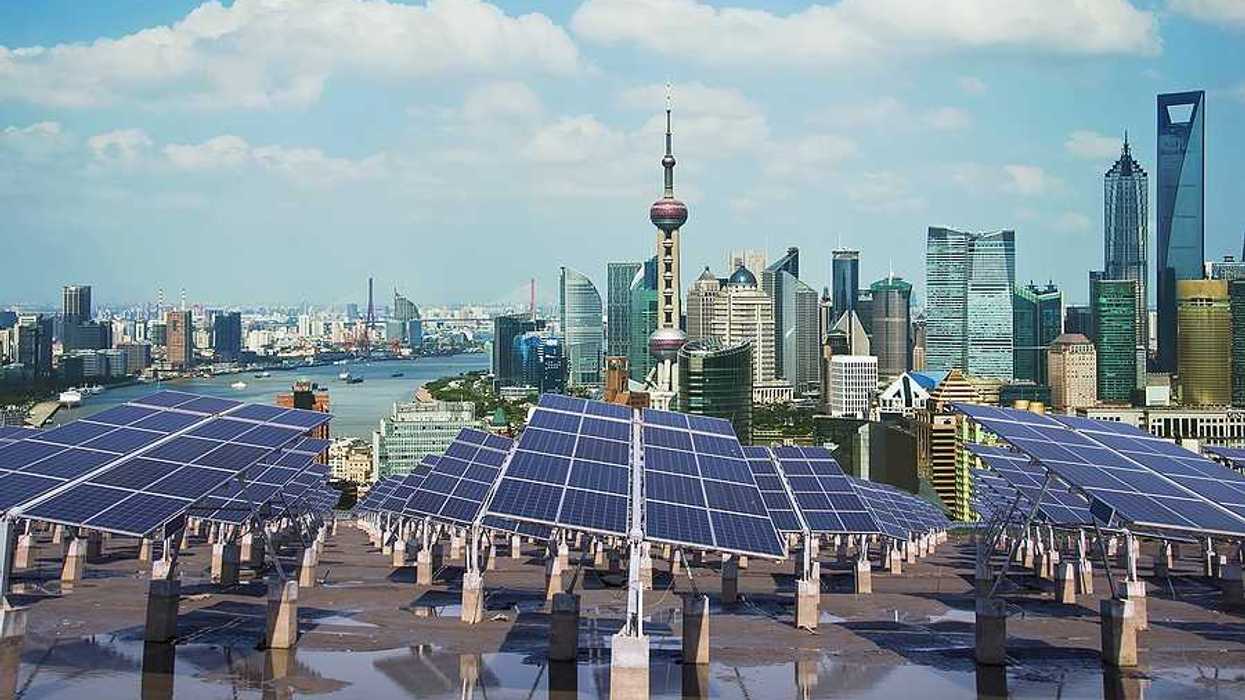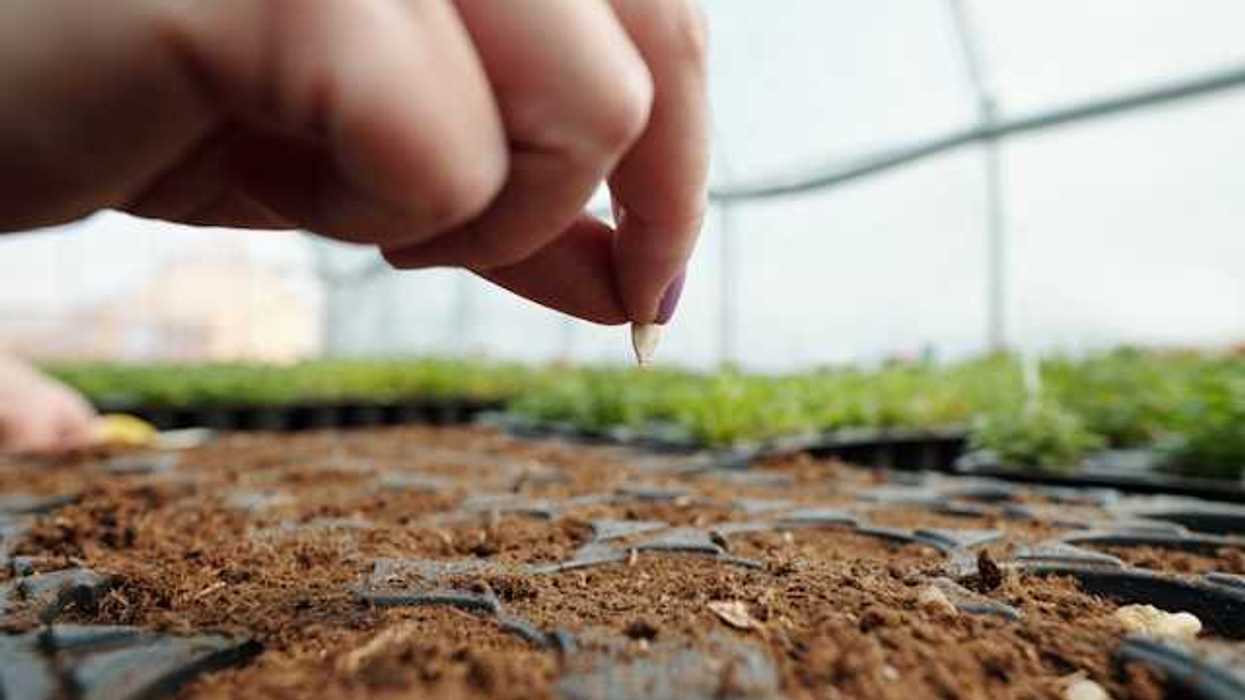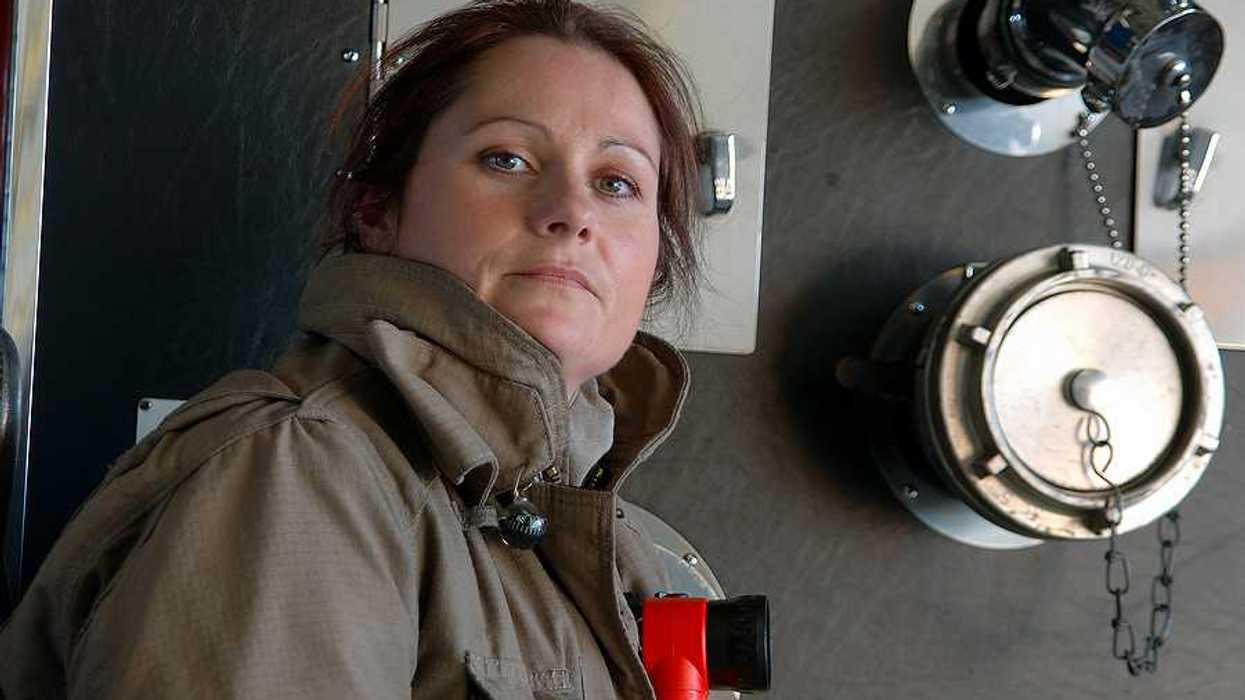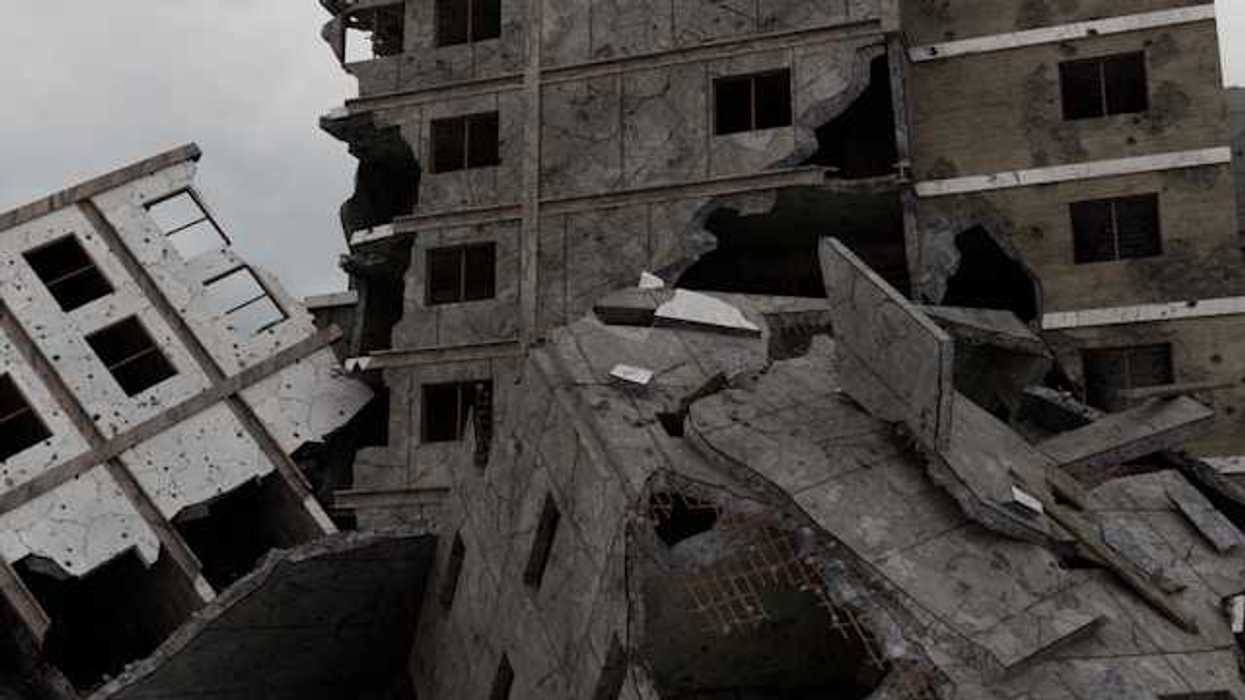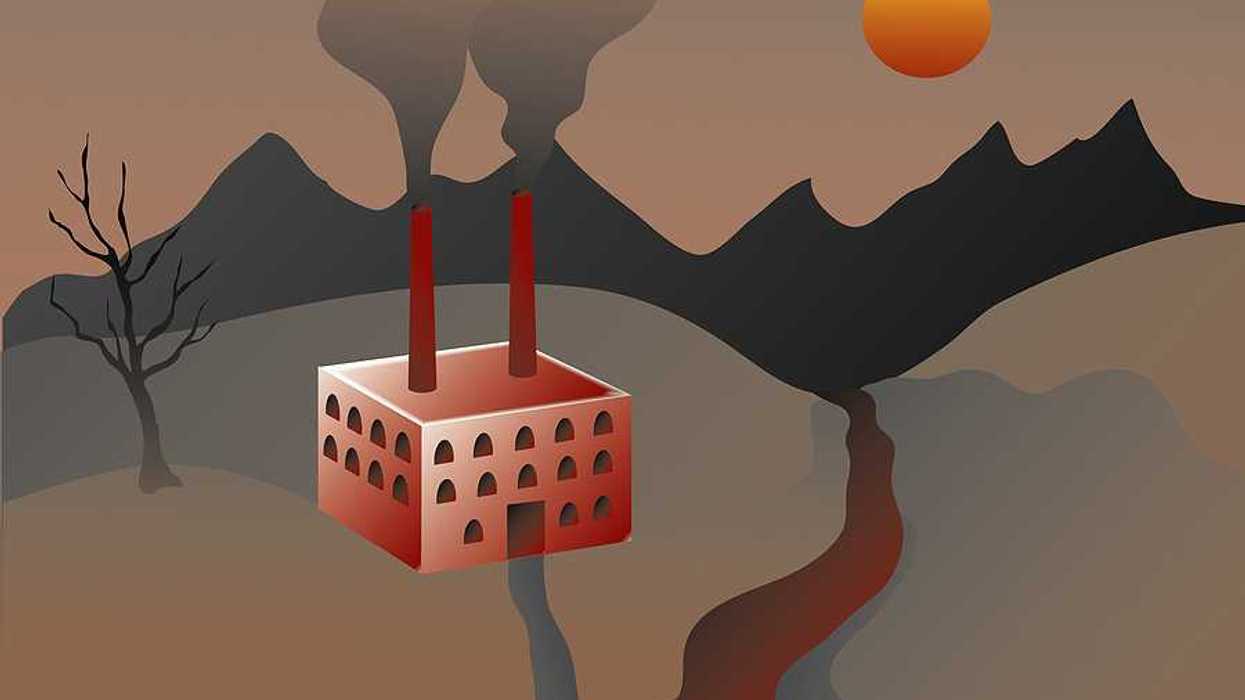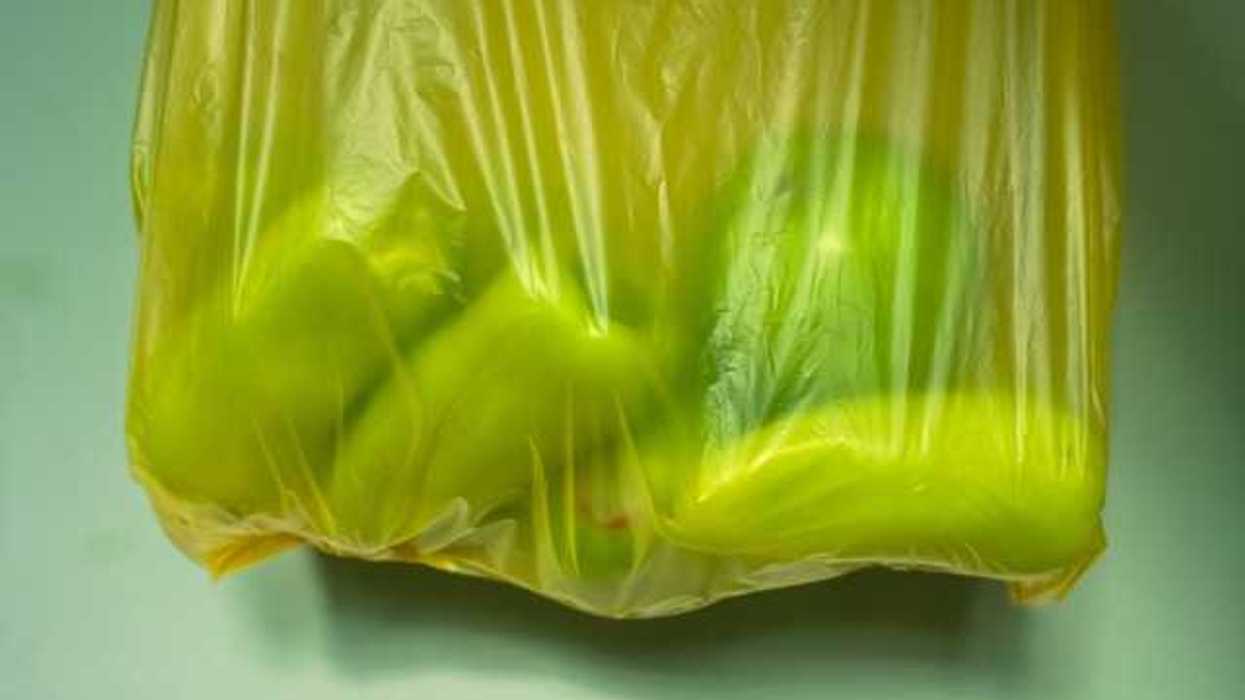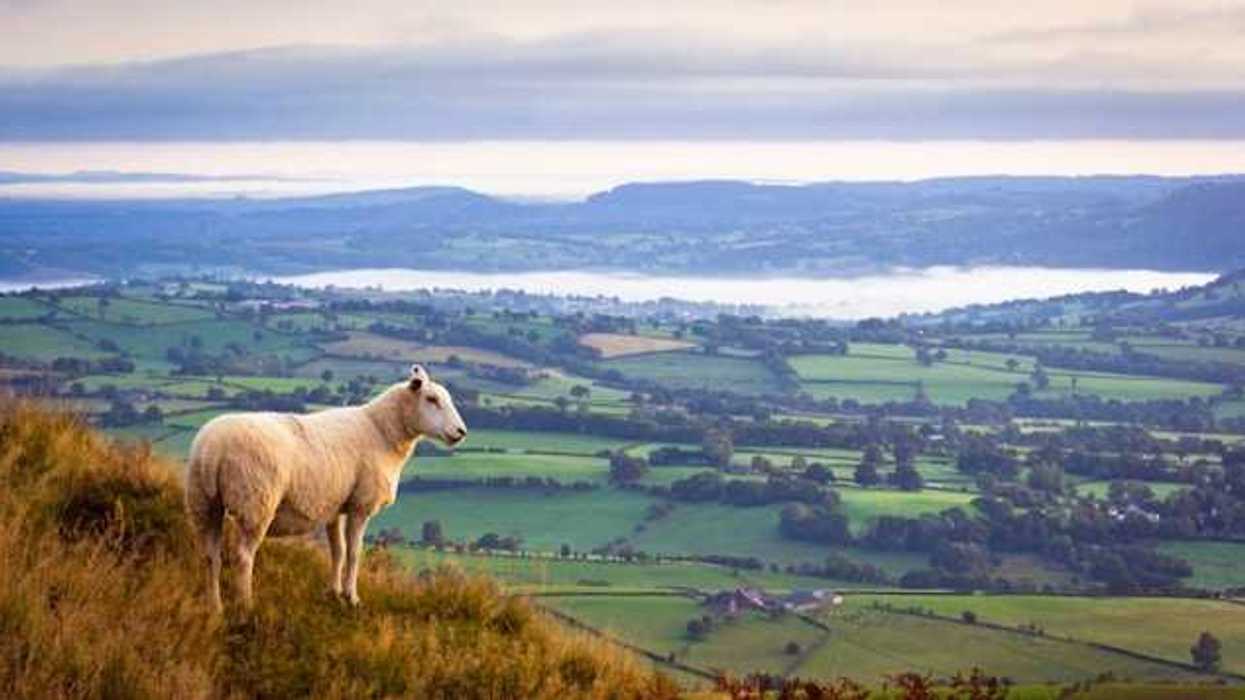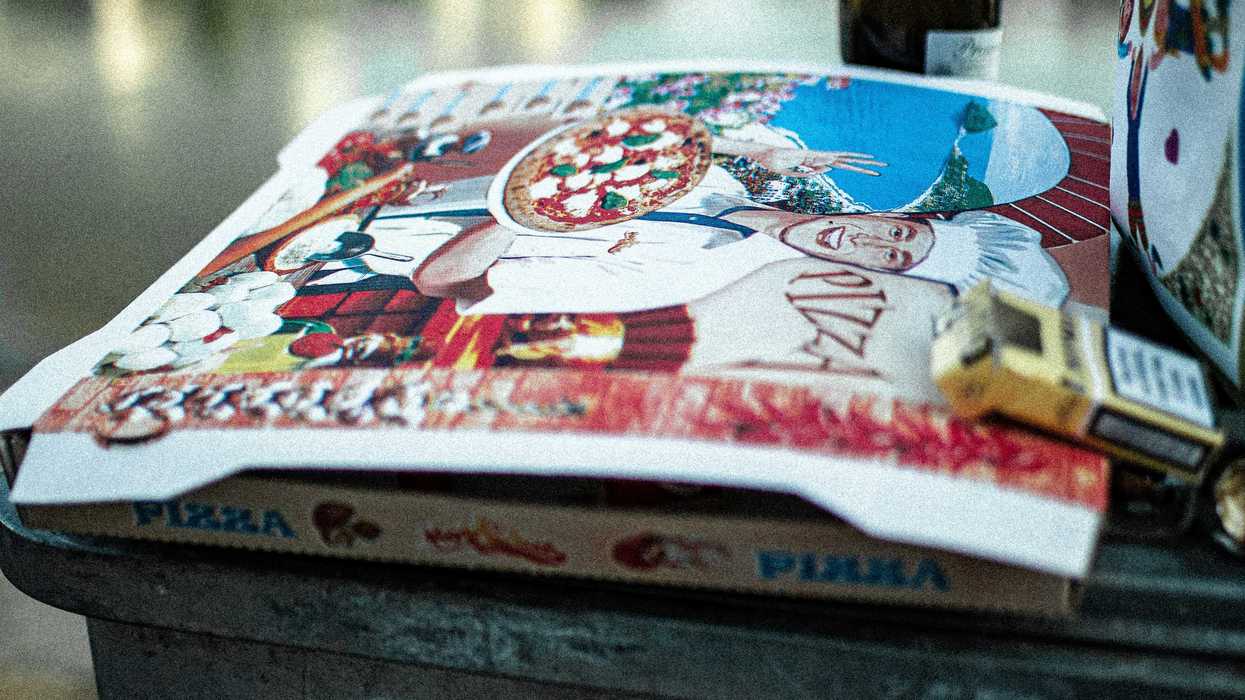Senior fellows Dr. Robbie Parks, Jan-Michael Archer and Marissa Chan join the Agents of Change in Environmental Justice podcast to discuss what is means to be biracial.
Parks, an assistant professor in environmental health sciences at Columbia University; Archer, a Ph.D. candidate and National Science Foundation Research Trainee at the University of Maryland School of Public Health; and Chan, a Ph.D. student in Population Health Sciences in the Department of Environmental Health at Harvard T.H. Chan School of Public Health, discuss their biracial experiences growing up, how the multiculturalism created both opportunities and challenges, and how it shapes their environmental justice research.
The Agents of Change in Environmental Justice podcast is a biweekly podcast featuring the stories and big ideas from past and present fellows, as well as others in the field. You can see all of the past episodes here.
Listen below to their discussion, and subscribe to the podcast at iTunes or Spotify.
Transcript
Jan-Michael Archer
Hello and welcome back to the Agents of Change in Environmental Justice podcast, a partnership between EHN and Columbia University Mailman School of Public Health. I'm Brian Bienkowski, senior editor at EHN and the editor of Agents of Change. Let's get right to it today because I'm so excited about today's episode. Senior fellows, Dr. Robbie Parks, Jan-Michael Archer and Marissa Chan discuss what it means to be biracial. It is such an illuminating conversation on identity. Enjoy. Hey, everyone, my name is Jan.
Robbie Parks
Hi, I'm Robbie.
Marissa Chan
Hi, everyone, I'm Marisa
Jan-Michael Archer
we are part of the 2023 cohort of the Agents of Change in Environmental Justice fellowship. And we're here to have a conversation about what it means to be biracial. We're all biracial. And I'm really excited to speak with Robbie and Marissa, about my experience and what that means for the work that I do right now in environmental justice. So let's kick it off with just letting folks know who we all right. Robbie, do you want to jump into it?
Robbie Parks
Absolutely. Thanks. Yeah. My name is Robbie Parks. I'm an assistant professor at Columbia University in environmental health sciences. And I am from a background where I grew up in London in the UK. But my mum was from the Philippines. And my dad was from another nation in UK other than England, which is Scotland, originally from Glasgow. So I've sort of half Filipino, of British, I suppose. Yeah. Thank you. Maybe Marissa, you're gonna go next?
Marissa Chan
Sounds good. Thanks, Robbie. First of all, thank you both so much for the invitation to chat with you all today, I'm really excited to have this conversation. And for the folks listening, my name is Marissa Chan. I'm a PhD candidate at Harvard TH Chan School of Public Health in the Department of Environmental Health. And in terms of just me and where I've come from, I'm originally from California, but my parents are from outside of the US. So my dad was born and raised in Hong Kong, and my mom was actually born in London, but her side of the family is from the Caribbean. So St. Vincent and St. Lucia. And so I'm Afro-Caribbean and Chinese. And yeah, that's just a little bit about me,
Jan-Michael Archer
P, backing off of that, and kind of bringing it full circle, I guess, I am of Guyanese heritage. So that means my mom and my dad are from a country at the northern edge of South America called Guyana. And my mom is of Indian descent, my dad is of African descent. And in Guyana and other parts of the Caribbean, I would be called dougla, which is basically kind of a reflection of that half-half relationship or of our progeny. And Marissa, I am also super just happy that you are here, because speaking of bringing it full circle this, the idea for this podcast for this episode came from a conversation that you and Robbie had at the retreat last October. So I feel like the one who is kind of like brought in on this conversation. So I'm really excited. You definitely.
Marissa Chan
You definitely joined in on that conversation. It was definitely all three of us chatting a bit about our experiences. So
Jan-Michael Archer
Yeah, I definitely I was facing the other way. And my ears just kind of perked up. Like, oh, "other people like me." Yeah, let's, I mean, let's, let's chat about just what that multicultural, biracial background is looked like over over the years for for each of us. Robbie, why don't why don't you start?
Robbie Parks
So, thanks again. And again, I would just like to think Marissa, and you yearn for, for making this happen. And we sat here and this is such a privilege. So I, you know, very, in some people would say, I probably come across as very British. And in some ways I am. However, like growing up, I think I really didn't fit into any one particular group. And so, you know, my mom was always providing me although she didn't provide me with, you know, an ability to understand or speak the languages that she spoke –Tagalog and Ilonggo in the Philippines – very much a big part of that culture was part of my growing up. So going to parties and just hanging out with other Filipino visitors to the UK and meeting other friends and family from the wider Filipino diaspora of which somewhere in the United States and Canada. And on the other side of things might you know, my dad was, you know, very, a very open, loving guy, but you know, very much from the white s tradition of Scotland. And so, you know, that mix meant that I felt like I had lots of different influences, but didn't quite fit into any one particular group. So at school, people would, you know, ask me what I was, and I wouldn't know how to answer. And I think part of that really has stuck with me through the years and not feeling necessarily like I belong anywhere. But also at the same time feeling like I belong to two groups. So it really is a big privilege for me. But it is also kind of maybe a sort of invisible burden that I think a lot of us who are from multiracial backgrounds carry. And so that stuck with me through my whole life. And I think that duality of feeling like I belong to multiple communities, but also not really to any communities is something which I, I sort of strongly feel as I go through my life and career.
Jan-Michael Archer
Yeah. The folks on the other side of the podcast will not see that we're all just like emphatically nodding. Yes. Yeah. Because we are doing this on Zoom. Yeah, no, I can definitely relate to that, Robbie. In Guyana, when, when my parents were younger, and you know, at the time that they got married, being of Indian descent, my mom was very much expected to kind of go with go the arranged marriage route, and so she completely bucked that system. Didn't just, you know, kind of decide to marry who she wanted, but like, then decided to marry outside of her race. And that was a big deal to her family. And she got excommunicated. And it had a really big impact on her and her own her own identity, and her personhood that was very easy to for me to see growing up because she had like a very kind of cold or harsh perspective towards other Indian people. But it's, you know, that's that stuff is really there, you know, that, that created some trauma that that then I absorbed or at least observed growing up in terms of what does it mean for my identity as someone who is Indian, you know, but, you know, the person that I love doesn't really have a great opinion of these folks. And then from from my dad's side of things, it was also kind of strained and fraught, because he grew up at a time in Guyana, that where it was still very colonial. And so he has some of this like indoctrinated, inculcated anti-blackness kind of, you know, these, these, these affinities to the crown and to, to the British systems and whiteness there. And so both of my both my, my mom and my dad came over to the US and tried to identify, you know, where they fit in as immigrants, and you kind of look at who has proximity to power, and who has proximity to privilege in the United States. And it's, it's definitely not Black folks. So I feel like that also impacted out my dad, who is Black, kind of interacted and engaged with Black culture over here in the States. And, and that's something I also kind of absorbed and observed. The result was like, you know, little Jan was like, felt like super other-ized, like a margin of a margin. And we're gonna end on a high note. Yeah, I think like, the silver lining of that is just kind of, you know, occupying these spaces of discomfort can be very kind of strengthening and hardening, for better or for worse, but in my experience, it's also created a lot of empathy. I think, for me, when I see othered, and marginalized people that aren't Indian, or Black, or biracial, you know, just like the outsiders, I kind of have this this kinship that I feel, because I went through that. What about you, Marissa?
Robbie Parks
Yeah, absolutely. Thank you for sharing Marissa, I really resonate with that. And I think, you know, partly what people probably that, you know, it's probably coming from a place of kindness in or what they think is genuine or genuine curiosity to ask what, like, who are you? What are you? but I think highlighting the fact that that, like a lot of things can can make people feel or trigger people in a way that they need to understand that that isn't always necessarily an appropriate thing to do. And I think in fact, it's really inappropriate because, you know, the reference point coming from I want to identify in a in a human taxonomy kind of way where people are from and, and, of course, everyone's on the spectrum in regards to where they're from too. But those kind of questions, certainly for me, like yourself, they can be pretty, pretty annoying. And I think and, and just quickly summarize. Yeah, just on the food point, you know, I yeah, I'm doubly grateful for my mom's side, because no offense to Scottish food, but it's not, it's not really something I vibe with particularly. So I do love I love I love British culture, too. But, but the Filipino food is something that that really sticks with me when I show people, my friends and other people pictures for my use. And, you know, just seeing my mom would literally sit me next to the food. And then that would be a picture that is worth taking every single time where our party and that that really sticks with me as a memory. So yeah.
Marissa Chan
I really, really appreciate you both for sharing all of that. And just for the podcast listeners, again, a lot of nodding all of our friends. I feel like the shared ideas brought up about feeling otherIZED not feeling like they fit in, I truly resonate. And I feel like there's a lot of stories in different spaces, at school or just within both communities you never really feel like you fit in. But one point that I think is also really interesting that Robbie really brought up is the idea of folks asking what are you? That has been something my entire life that people on the street random folks that I have no connection to as well as people who I do know, just asking what are you and it is just such an interesting experience that I'm not sure a lot of folks really... unless you've engaged or engaged in some way and in the space where you feel like you either do not present a certain way. But really all this to say that that is just a really interesting experience where a lot of folks feel the need to classify or characterize you or put you into groups for their own personal I don't even know how to benefit or gain But they truly feel a need to go out of their way to ask you, what are you, which I think is pretty, to be honest, rude. And even beyond that, it's it. There's was one experience, I think in undergrad where we order pizza, because what else do you do in college? And the person who delivered the pizza, I asked her what I am. And I told him, and he said, No, you're Filipino –funny connection– But I'm like, No, I'm not. But just the fact that people are so adamant about what you are, what you're not and feel the need to classify us as something is just really an interesting experience that I've encountered. But on the positive note, because we are ending on the positive note, I think something that I've also really encountered growing up, which I appreciated being from a multicultural background is the food. I think a lot of my experiences are connected to food. So some of my favorite food being like dim sum, as well as callaloo and crab, which is a dish, my grandma used to make, a popular Caribbean dish. So I think food also really, really brings us together and allows us to have the shared experiences.
Jan-Michael Archer
Yeah. And for me, just kind of continuing this the shared experience of like, the WHO ARE YOU question? For me, it was doubly discomforting, because it almost always came from Black folks. And especially at a time when I lived in wither, well-to-do more affluent communities, like in Orlando, Florida. I was at a time in my life, kind of like, you know, 10, 11, 12 when I really wanted to fit in, and surrounded by whiteness, I really and I'm not happy about it, but I really downplay I really have upplayed the dynamic of like, "Oh, I'm not just black. I'm exotic. I am also Indian," you know. And I did that because, you know, I saw like, how the white kids treated the Black folks and just how the world treated Black folks. And I was like, Well, let me let me align, again, align myself as I saw other people in my life, let me align myself with that privilege. But then it kind of flipped in his head when I moved back to Stone Mountain, which was predominantly Black and I just wanted to be, you know, Blackity, Black, Black, you know, I wanted to lean really hard and reconnect to that part of my culture now surrounded by so many other you know, Black folks, it would always be like, you know, Black women and Black girls who would like scrutinize my hair and be like, "Oh, why is your hair so curly?" Like, you know, or like my eyelashes or like anything, any of these features that that outed me as like not being 100% Black, I was like, "no, no, no, like, don't don't point out these things. I'm Black." Yeah, that was part of that is a little bit of part of of that, how that played out for me be your own people some times.
Marissa Chan
Yeah, yeah, I also really relate with some of those experiences you shared. During my time, I worked at a black reproductive justice organization in South LA. And while I was there, a lot of the times when I was tabling at community events or other spaces, a lot of folks would read the sign and then look at me and then ask where's the Black woman? So I truly understand and resonate with everything that we've shared so far.
Jan-Michael Archer
Yeah, that's That's so like, Oh, that's so hard to hear because you show up to do the work and it It's almost like your credibility. And if not even almost like, immediately your credibility is kind of challenged in doing the work. I think this transitions really well into the conversation about, like, how has this impacted us in the environmental justice spaces?
Robbie Parks
But yeah, I think, you know, just on the point about identifying and being identified in a certain way, I think, in some ways that I had the pressure to identify with the white side of my background. And I think, I think I did that to the point maybe where I feel now that my Filipino side might be, I worry, it might be irretrievably lost. And that's a big part. And especially if anyone who read my essay, you know, my, my mum isn't around anymore, she passed away a few years ago, and I feel sort of grabbing it thin air. And in some ways, I sort of want to, to reclaim it more and more, but but the default for me, and that that's a great shame for me is maybe being seen as white and, and feeling like I have attributes associated with with, you know, white culture in the UK, especially, and I think going to university go to college, that really, I don't know, whether it was external pressure, internal pressure, but for me, that was a huge pressure that made me sort of wear certain clothes, act a certain way, speak a certain way. And I think that that's something maybe I don't know, if many people identify with you have an ability to be seen as a certain, from a certain culture or certain other culture, that there is really something I haven't read a huge amount about into, you know, there's, there's the concept of white passing, and things like that, but, but I sort of feel like, if I had the chance, I'd really love to be able to claim the other side of me too. So just you guys talking about that just made me think of that, too.
Jan-Michael Archer
Yeah, I work in a lot of Black communities now. You know, environmental justice communities that are that are facing toxic exposures from air pollution and traffic. And I develop these really strong connections with these folks, because I go and I break bread, sometimes I stay at their houses, and it's really gratifying. And at those times, I really feel connected to my own blackness, and especially when I go down to places like Union Town, because it's another Southern, you know, location, kind of that feeling of kind of reconnecting, but at the same time, there's this, this shame that I feel in terms of questioning my own authenticity, my like, how, how can we talk about being biracial without talking, talking about interracial dating, or just interracial relationships. And so, you know, my, my partner is white. And sometimes there's this specter of, you know, bringing her around, because I've built up this, you know, in the work that I'm doing, it's so focused on doing what's right for Black folks, and I earnestly, you know, that's part of my core, that's part of my, you know, what I'm bringing my passion that I bring for the work. But but then kind of being having this hesitation of like, okay, now, how do I introduce that I'm dating a white woman, you know, into to these folks. And honestly, it's, you know, just it comes down to just being you being who you are, right? and just putting your most authentic self forward and saving the anxiety for therapy, I think. What do you all think about that?
Marissa Chan
Yeah, I completely agree. I think I've actually, I completely forgot about this experience until you just mentioned it. But I had someone in the past ask how do I contend with the fact that I'm dating someone who's white while working in environmental justice? And I think it was a really interesting question. I don't know if a lot of folks are asked this. But I think, as you kind of mentioned, it comes down to who I am, who we are and who the person you're dating is and just being authentically you, and whatever spaces you enter, but I think it's an interesting question that has come up for me, I'm not sure if either of you have experienced someone just directly asking you that and what your response might be. But I think that's also an interesting kind of, I guess, pivot from not even pivot, just extension of this conversation based on what you mentioned.
Robbie Parks
Yeah, I mean, I think in terms of parental pressure, I think my, you know, my mom, who I love very much would always well, she would always say two things. She would always say, whenever I had any adversity, she would just say, keep studying. And I think she would say that even into my to age 30 And, and beyond. So she's very focused on education. But then she would also say that, you know, Filipina girlfriend was the was the right girl for me, whoever that was, and so there's definitely what that parental pressure from from probably my dad as well, because he probably married a Filipina, so he probably would agree. But, you know, I guess maybe as a rebellion, I never went down that road at all yet, at least yet, but that's definitely on my mind is the idea of what she thought the ideal person would be and the pressure I always felt if I had a new girlfriend, who, who was was a white girlfriend, and she would ask particular questions like, "does she know how to do this or that?" And, you know, that would always be a little bit awkward, let's say so.
Jan-Michael Archer
Yeah, yeah, I think it's something I mean, your your mom's not totally off. She said, she's not totally off. Because maybe I would substitute or paraphrase, you know, instead of like, keep studying, just like, keep showing up and keep learning about who you're working with. And, you know, just have the conversations, right? I mean, stay committed to the work and don't get distracted. I think it's, it can definitely be discouraging, when you know, Marissa, the first thing someone says is like, oh, "where's the Black woman?" Right. But, you know, just kind of keep your eye on the ball in terms of, are we here to get recognized for what we're doing? Or are we here to do the work? I don't know. Maybe that's maybe that's an idealistic perspective on it.
Marissa Chan
No, I agree. I think, for me, it is about the work. And it's about the communities we work with and for. So I completely agree with that. It is discouraging to get those comments. But from the other side of things, I've also experienced the comments of like, oh, you're so well-spoken, you get all everywhere in between? So I think it's really Yeah, specifically, Oh, you're so well-spoken while working for a Black woman's organization. So I think it's really just having to navigate and I don't even know if dodge is the right word, but dodge some of these questions that feel very personal. But folks are interested and maybe well-intentioned in their in their interest. But it I definitely think it is a notable thing that that I've experienced, and it sounds like we've all experienced as well.
Robbie Parks
Yeah, I think that, you know, it's just segwaying into the idea of the challenges in, in the environmental justice space, I think the idea of your community is, you know, certainly drives the work that we do. And so, you know, just to kind of think about that, for me, it's like, the, it's both a privilege and a challenge. As, as I said before, the privilege is you have multiple communities, but then the challenge is also, you know, identifying who your community is, in particular, and who might see you as part of the community. So, so although it is about the work, I do think it's really important that there is a conversation, which is what we're having, I think, which is, how do you know, how do communities involve, and make people feel welcome, who don't necessarily fit the presupposed idea about what members of the community look like, or sound like or, or, you know, where they come from? And I think, you know, that that's, that's a key question. I think it's a really interesting question in our field is how we deal with that. I'm just wondering what you both thought of that, too.
Jan-Michael Archer
You know, I think I think that's super critical, because it has to do with, obviously, resources are siloed in certain places, and I keep coming back to this refrain of proximity to power and privilege and money, right. And so, obviously, so that's a reality in terms of where these resources are coming from, and the biases attached to that money. But also, it's a reality that these are communities, these are folks that have been met with like real trauma, real harm from these organizations or systems or entities, that then they're expected to just like, you know, bury the hatchet and come to the table with and, you know, after being blocked out from from having these conversations for so long? So, yeah, I think there shouldn't be an assumption or an expectation that, oh, "we're good now just because there's an opportunity to come up and do something about this, this decades, you know, this legacy of harm." There has to be that that first step of trust building and and, you know, getting to know each other and, and having those little like test fires of building those relationships, and kind of making sure that okay, if I identify that I'm not a good fit, because someone I'm working with or the team, I'm working with, or the community organization I'm working with has has its own kind of biases, and you know, they don't want to operate with me, then do I just drop it and walk away? Or do I try to reach out to my network and see like, Alright, what's the pivot? What's the move? How can we still get justice in this in this case, and still and make so that make it so that everyone feels like they're, they're valued, and they're, they're being heard and like, you know, they're getting it on their terms and not just forced into this box of justice, that that has been thrust upon them?
Marissa Chan
Yeah, I think that is a really important point in all of this in terms of relationship building, and all the work that it takes to work, to have the privilege to work with communities, and sometimes it won't be a good fit. And just understanding that is a part of the process. One interesting thing that I've encountered in the work that I do, and in the context of our conversation about being multiracial and biracial, is people don't know what to do with biracial folks in kind of the beauty justice, personal care product world right now. A lot of the work either classifies folks as other so in some ways otherizing them just, I think the rationale behind it is for a sample size perspective. But what it does, maybe unintentionally, or maybe in some cases, intentionally, for folks in terms of actually placing these folks in the "other" category I don't think it's really talked through. Or the other side of things where these people are just dropped, their data is just excluded based on the sample size again, and what that really means in terms of exposure to some of these personal care product chemicals that I work with, as well as potentials, surrounding the disparities or inequities in health outcomes, we're not really examining that right now in this space. And I really think there needs to be a push towards incorporating more diverse folks, not only just in terms of racial, ethnic composition, but in terms of other categories as well. So that is something I'm not sure if you've all experienced that in the fields that you work in. But I think maybe it's controversial to say in this in my space, but I don't think we've really done enough work in terms of thinking through how we intentionally incorporate biracial multiracial, folks.
Jan-Michael Archer
Yeah, wasn't there a big that that was kind of a prominent feature of the most recent census, right? out there, there are more biracial or mixed-race folks in the country than there has ever been, and, you know, the trend will continue to, to increase.
Robbie Parks
Yeah, absolutely. I think, you know, in terms of the way that, you know, even filling out a survey to say, you know, what's your race, ethnicity, now, at least, you could take more than one box. But, you know, in many ways, they're more categories, but I still find myself ticking white, and then Asian. But for some reason, Asian feels very strange to me to be ticking that box, because I'm from the Philippines. And of course, Asia goes from all the way from Turkey, all the way to the Philippines. So I think there's a lot of work to be done in terms of trying to understand what the different nuances are coming from different places are, especially just by themselves, but especially as a mix, because those mixes, you know, those combinations are sort of so many that I think people are overwhelmed. But, you know, just every time just from a personal perspective, every time I fill in those surveys, I always feel a little bit sad, because I'm like, I don't feel like my true representation is being translated onto the page. And I think that's sort of reflective of a wider problem of just trying to understand how to define people who don't fit into very traditional, very obvious buckets of, of kinds. So, so yeah, I think that that certainly made me think of that, too.
Jan-Michael Archer
Yeah. And I think this is another kind of silver lining, right? Because for me, at least, going through that as a kid taking those standardized tests, or just whenever the first time you encounter having to identify yourself on paper, I, maybe I'm just pulling this out of my, wherever, but like, I think it created this sense of appreciation for for the gray areas in life, right? Like there's something to be said about not seeing yourself represented in a system and then wanting better for that system. And having that awareness, you know, whereas other folks who have been able to just check, you know, African American or Black, just check white, just check, whatever. They might not have that awareness that this is something that, you know, a big chunk of folks are contending with.
Robbie Parks
Yeah, and just to get to your point, yeah. And I mean, the fact that you know, it, I think the people being a mixed background is only going to increase, the proportion of the population, and yet it is a relatively understudied as Marissa's point and sort of misunderstood group of people, although, of course, by definition completely heterogeneous. I mean, no, no single mix of no single person is the same. But there are so many mixtures of people that I think, you know, again, we run the risk of trying to categorize them all as other, and then that creates its own problems. And so, you know, it's really, really sort of a deep and wicked kind of riddle to solve there. Especially in the context of environmental justice.
Marissa Chan
Yeah, it's kind of also interesting, this conversation has made me think back we interviewed for the podcasts that I work on with my advisor, a author Laurie Thorpe. And a lot of that conversation surrounded some, for some folks unknown, quote, unquote, history in America. And she really highlighted the fact that interracial dating relations that were not purely just relationships, but like friendships, economic relationships, and so on, have been happening. As all this time, they've just not really been documented, discussed or really captured for whatever reason. So I think while the census and a lot of the things now are speaking towards the fact that people being biracial, and multiracial is going to increase exponentially, or whatever, as we go on in the future, it has been happening as well, throughout time, so I think it is also, while we look forward, it's also important for us to highlight and acknowledge historically that this has also occurred, I might not be the best person to speak towards those details in terms of how that is looked. But I know there has been some work that has really tried to highlight the fact that this has been happening, and it will continue to happen.
Jan-Michael Archer
I think that's really critical. It's important to know, like, who is where it like, first of all that that this is being worked on? And who's you know, who has the answers? Or who's looking for the answers? Because obviously, the answer is not to. All right. "Now, we'll just make make sure every standardized test has mestizo and mulato and Octoroon. All these, and dougla," right? That's, that's not the way we want to go. We don't want to if the problem if the source of the problem is like categories, categorization, or optimization and all of these kind of the Devils of efficiency, we want to make sure we're not trying to solve the problem with that same solution.
Robbie Parks
Yeah. Yeah. I mean, even with the labels that we label, I said, my mom grew up calling me a mestizo, because in the Philippines, that's half Filipino and half not Filipino. And so there is always a loving term. But I only recently realized it's not always a loving term in other cultures. So. So I think those labels even though I'm really sensitive to place in time. And so it's an education for me to have a sense, especially in the United States, where the reference points are slightly different from other parts of the world, too.
Marissa Chan
Yeah, for me, I think the first time I heard that term, Blasian was an undergrad. And I don't know if it was like a weird moment of like, oh, there may or may not be a term for me. But also, what does that mean? So that was an interesting moment, as well. So it's interesting to hear all these different the multitude of feelings we have for, for these terms, but I'm kind of curious as well, that you brought up in the whole idea of characterization for efficiency. I'm curious, I don't really know the answer to this. So he'll don't know an answer. Maybe this is a broader question for folks, just to think about, but in terms of why people feel the need to categorize biracial and multiracial, folks, do you have any thoughts about that? I'm turning this podcast interview back on y'all sorry. But that is something I really don't know an answer to. But that yeah, how you kind of brought up the whole efficiency point. I had never thought about that from that aspect. But yeah,
Jan-Michael Archer
there's this amazing quote, that goes, "there's nothing more potentially hostile than the indigenous ego, interpreting the laws of his conqueror upon his own people." And the first in that that's from Domingo Martinez in his book "Boy Kings of Texas." And the first time I heard that I thought about kind of my placement actually, I thought about my placement as an academic working in community spaces, you know, what baggage and biases am I bringing from the academy to this community? And what am I trying to interpret on on these people, even if they might give me a pass because of my Black skin? but I also think of it now in terms of just being biracial and like that, that sense of identity and trying to fit in, you know, what's what's lost when you're when we're trying to circle that square? you know, it It speaks to assimilation, right? And how we this this kind of drive to, to fit in, and to be a part of the system and be valued by the system, you know, we end up adopting some of these kind of really awful aspects of the system, right. So I think it's a little bit of that in terms of a societal way, but also maybe just a very human way of of our own, you know, reckoning with our own identities, we want to know what we are philosophically, right. But But again, maybe that's just a Western treatment of sense of self and sense of identity.
Marissa Chan
I appreciate that. I feel like, I appreciate both those comments and just thinking through how complex and multifaceted and somewhat nebulous this all is. But there are the all these different drivers. So it is really interesting to hear all of your perspectives on and I do completely agree, I think going back to the taxonomy, and the need for folks to figure out who is in the in versus out groups and kind of the legacy of colonialism and racism for certain spaces in places I think, is apparent. Yeah.
Jan-Michael Archer
Yeah. This is so such a great conversation that we're having, because I feel seen, and maybe that's kind of selfish, right? But
Robbie Parks
Yes,
Jan-Michael Archer
but I feel like, you know, where, where would I have gone to get this kind of dialogue before now?
Marissa Chan
No, I agree. I feel like being in a space with folks who understand this experience and this part of me, I think, is very unique. So I appreciate you both.
Robbie Parks
Yeah, I certainly feel seen too. So I really, really appreciate it. And it's it's sort of sometimes not knowing how much of a burden one carries. Because sometimes there are names for things. And so, you know, as soon as names are identified and things for these kinds of burdens, then only do I realize, oh, wait, I've carried this my whole life and now I know, because I can speak to friends and colleagues like yourselves who can say, oh, no, wait, that feelings. It's a feeling I've had to and I've always felt a little bit like I haven't fit in, even with my own communities is exactly. Yeah, I totally agree. This conversation has been almost therapeutic in its usefulness to me. Thank you.
Jan-Michael Archer
yeah, the power, the power of collective discourse and consciousness raising and, ah! my heart is so full.
- Op-ed: It’s not just hair — fighting beauty injustice beyond the individual ›
- LISTEN: Marissa Chan on solutions to harmful beauty products ›
- LISTEN: Robbie Parks on climate justice and mental health ›
- LISTEN: Beauty justice in the LGBTQ+ community ›
- LISTEN: Jan-Michael Archer on the fight for environmental and workers’ rights ›
- LISTEN: Alexa White on supporting small-scale farmers ›
- An audio diary from the COP28 climate conference, Part 2 - EHN ›
- An audio diary from the COP28 climate conference, Part 1 - EHN ›

